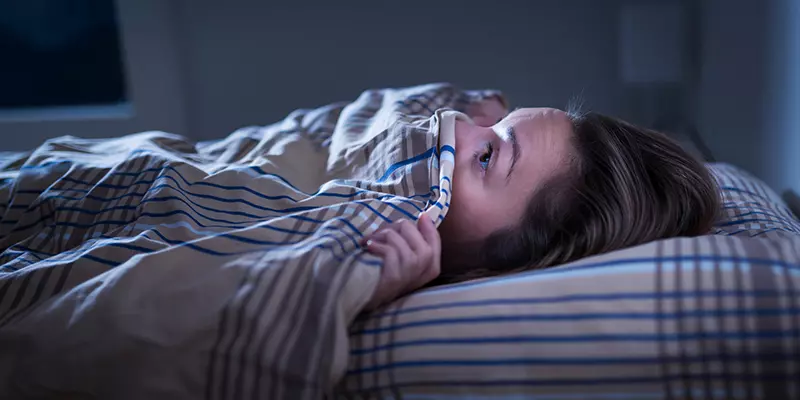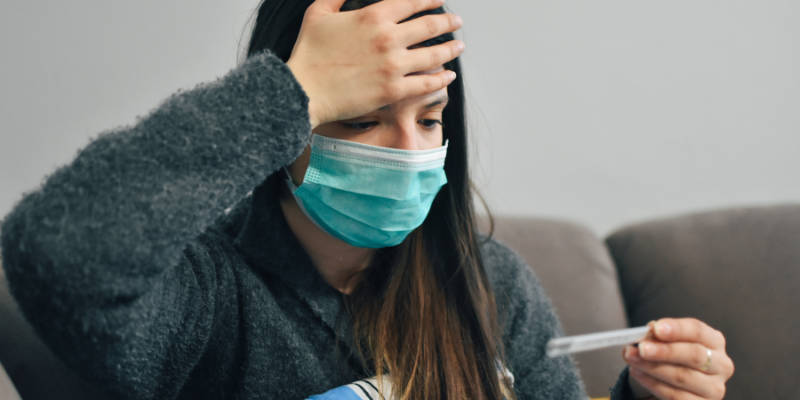
“I was in Ireland & had been invited to open up, solo, for U2. It was the day of the show… I spent the whole day getting more & more anxious that I didn’t have anything to wear. Instead of going to the arena where the show was being held, I went to a huge shopping mall… I started to get a string of texts from U2’s tour manager asking where the hell I was & why I was skipping soundcheck… Then I got a final text from U2’s tour manager: ‘Don’t bother coming. Show has been canceled. Bono has just died suddenly and unexpectedly from COVID-19…’”
This is an excerpt from one of the many submissions to “I Dream of COVID,” a website where people are documenting the weird and wild dreams they’re having during the global coronavirus pandemic. People are also posting their nightly subconscious escapades on Twitter using #pandemicdreams, including this one:
“I had a dream last night that I went food shopping and people kept intentionally touching me, circling me and intentionally coughing on me. Apparently my subconscious along with the rest of me is pretty damn terrified. #pandemic dreams”

Apparently, the coronavirus isn’t just attacking people’s health and mental well-being, it’s also messing with our minds as we sleep.
What’s Causing Pandemic Dreams?
“Our dreams are being influenced by our heightened stress and anxiety, changes in sleep patterns, isolation, and more,” says Dr. Shane Creado, a psychiatrist and sleep medicine physician at Amen Clinics in Chicago and the author of Peak Sleep Performance for Athletes.
Dr. Creado says he’s been hearing from many patients that not only are they having dreams that are extremely vivid and strange, but they also seem to be remembering more of their dreams. They’re not alone. French scientists from the Lyon Neuroscience Research Center have found a 35% increase in dream recall due to the global pandemic.
Dr. Creado, who does sleep consults and who hosts an online course on Overcoming Insomnia, explains that this may be because the anxiety we’re experiencing during our waking hours is impacting the quality of our sleep. According to Dr. Creado, the fears and stress surrounding the coronavirus pandemic are causing more awakenings, or what is known as sleep fragmentation. This means that when you’re anxious, you lose sleep.
More importantly, to make up for sleep loss, your brain may quickly take a dive into rapid-eye-movement (REM) sleep, which is when our most vivid dreams typically occur. “Thus, worry can not only trigger nightmares,” says the sleep specialist, “but the sleep loss associated with them can increase their frequency.”
Why Nightmares Aren’t All Bad
As many as 85% of adults occasionally experience nightmares, according to the American Academy of Sleep Medicine. What are the most common nightmare themes? A 2016 study found that the top 10 nightmares involve:
- Falling
- Being chased
- Death
- Feeling lost
- Feeling trapped
- Being attacked
- Missing an important event
- Waking up late
- Loved one passing
- Sustaining an injury
Other common nightmares include your teeth falling out, being paralyzed, or bugs crawling on you.
But nightmares aren’t all bad. Dream experts believe they may serve a purpose. “In some ways, nightmares may help us better navigate stressful situations in our waking lives,” says Dr. Creado, who trained in sleep analysis from a psychoanalyst from Harvard, and who helps his patients in dream analysis sessions.
A 2019 study in Human Brain Mapping suggests that nightmares help decrease anxiety by acting like a sort of rehearsal for how to deal with daytime stressors.
Having nightmares during this global pandemic is understandable. But having repetitive nightmares can be very troubling and can prevent people from even wanting to go to sleep. They are common in people who have been traumatized. And we are all currently being traumatized by the fear of COVID-19. Dr. Creado says, “It’s very likely that after things go back to ‘normal,’ we’ll be seeing rising numbers of people suffering from recurring nightmares and sleep disturbances.”
How to Reduce Nightmares Even During a Pandemic
To minimize nightmares, you need to get restful sleep. The following simple strategies can help you get better quality sleep to reduce the sleep fragmentation that can increase vivid dreams and nightmares.
- Don’t watch stressful TV news at bedtime. Limit your exposure to news about the coronavirus, and don’t tune in when it’s time to hit the sack.
- Avoid alcohol. So many people are using alcohol to calm their anxieties while in quarantine, but this can backfire. Alcohol may make you feel drowsy initially, but its effects wear off and make you more likely to wake up in the middle of the night.
- Skip caffeine. Similarly, consuming coffee, tea, or chocolate in the afternoon or evening can disrupt sleep. Avoid these substances after lunch.
- Stop eating 3-4 hours before bedtime. If you’re indulging in comfort foods and snacking on the couch while you’re binge-watching Netflix, can interrupt your sleep.
- Try natural supplements. Melatonin, magnesium, l-theanine, GABA, and 5-HTP—all found in Put Me To Sleep Naturally—help to calm the brain and promote healthy sleep.
- Seek professional help for sleep disturbances before you start popping sleeping pills. Brain imaging studies show that sleeping pills can harm the brain, and once you start taking them they can be very hard to stop. You don’t have to live with sleep disorders like chronic insomnia, sleep apnea, restless leg syndrome, or others. Finding a sleep specialist who is also trained in psychiatry like Dr. Creado, can help identify the root causes of your issues so you can fully address them.
If you’re struggling with sleep disturbances, anxiety, panic attacks, depression, or other mental health issues, you aren’t alone—45% of Americans say the coronavirus pandemic has impacted their mental health. Just because you’re sheltering at home doesn’t mean you have to wait for the pandemic to be over before seeking help. In fact, during these uncertain times, your mental well-being is more important than ever, and waiting to get treatment is likely to make your symptoms worsen over time.
At Amen Clinics, we’re here for you. We offer mental telehealth, remote clinical evaluations, and video therapy for adults, children, and couples, as well as in-clinic brain scanning to help our patients. Find out more by speaking to a specialist today at 888-288-9834. If all our specialists are busy helping others, you can also schedule a time to talk.





I have them all the time but my mom pass away and dad and sister there in them just like there alive most of the time my mom what is this about ? Thank you kath
Comment by Kathywyatt — May 11, 2020 @ 2:38 AM
Either I don’t dream or I don’t remember dreams. For example, we have lived in Belize almost 10 years. During all this time when I awoke I only sorta remembered one dream. It’s not a problem but what do you think?
Comment by Vicky Bergman — May 11, 2020 @ 5:01 AM
Are over the counter pills consider sleeping pills (1/2 of 1 every night)?
Comment by Angela Minelli — May 11, 2020 @ 5:02 AM
I have a recurring dream every single night that I am out in a crowd of people talking and laughing, and then suddenly I realize I’m not wearing a mask and no one else is either. Then the panic sets in. The locations change but the premise stays the same…and always the panic.
Comment by Ana VanOver — May 11, 2020 @ 8:03 AM
Ive been having vivid dreams about by childhood family but most arent night mares. The ones where my mom and dad and grandmo are present are pretty nice. Im having a talk with them and they answer questions and make me feel they are still with me.
Comment by Deborah — May 11, 2020 @ 8:11 AM
A sleep doctor…What’s next…The problem in society today is not dreams, it’s having too much idle time during the day and wasting it…Work at a job you enjoy, work after work in a garden to product & eat healthy food, take care of your own children and aged relatives…in your home, don’t ship them off to child care or an ‘old-folks’ home…I guarantee at the end of the day you will be tired, and sleep like a healthy baby…no need for a ‘sleep’ doctor…
My Uncle Fred…from our immigrant family always played the illegal daily number with the local bookie…This was before the government discovered a way to tax the system and take something illegal and make it legal for political gain…Well, Uncle Fred always spoke of dreaming about numbers…So, he purchased a “Dream Book” to interpret his numbers to help him play the special one’s in the dream book, hoping for a winner. Too bad he didn’t have a ‘sleep’ doctor to help him…
Sleep doctor…Too funny…
Comment by Dr. Henry Sinopoli — May 11, 2020 @ 9:21 AM
I take half of 10 mg Sublinox every night to
to get some sleep, otherwise no sleep.
Wonder how much damage it’s been doing to my brain?
Thank you
Amrit
Comment by Amrit ghangass — May 11, 2020 @ 9:28 AM
Soothing music helps me sleep. I have had nightmares all my life, but changing my lifestyle really helped.
Comment by Susan — May 14, 2020 @ 1:52 PM
This is a great article. The pandemic had and has a big affect on oiut emotions. Many people suffering from fear, anxiety and depression. It definitely had an affect over the few years
Comment by John Styffe — February 25, 2023 @ 10:38 AM
Thank you very much for sharing, I learned a lot from your article. Very cool. Thanks. <a href="http://pitahaya.gate-oi.info">nimabi</a>
Comment by nimabi — November 24, 2023 @ 9:12 PM